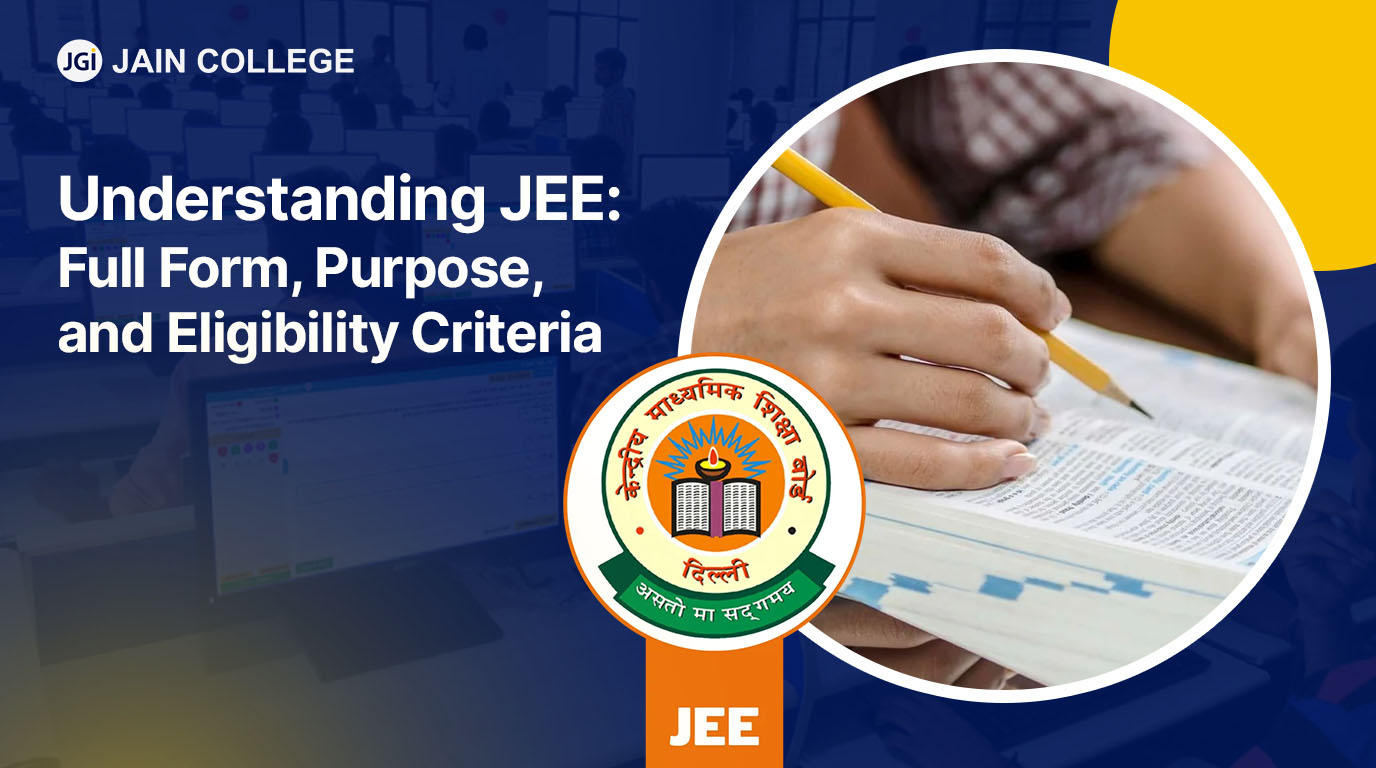
JEE Full Form: What Does JEE Stand For?
Exam Purpose: Why Is JEE Important?
Eligibility Criteria: Who Can Appear for JEE?
If you’re a 12th-grade student aspiring to pursue an engineering career, the Joint Entrance Examination (JEE) is one of the most significant milestones in your academic journey. It will gain you admittance to some of India’s most prestigious engineering institutes, including the Indian Institutes of Technology (IITs), National Institutes of Technology (NITs), and government-aided engineering colleges. But before diving into preparation, it’s essential to understand the JEE exam details such as its full form, purpose, and eligibility criteria.
The full form of JEE is the Joint Entrance Examination. It is a nationwide entrance exam conducted by the National Testing Agency (NTA) for admission to various undergraduate engineering programmes across India. For engineering, JEE is organised in two main phases: JEE Main and JEE Advanced. JEE Main is the first phase, and students who score well in these qualify for appearing in JEE Advanced, which is required for admission to the IITs. JEE is recognised as one of the toughest competitive exams in the country. More than 7 lakh students appear for these exams annually.
The primary purpose of the JEE exam is to evaluate the academic potential and problem-solving abilities of candidates who wish to pursue engineering at the undergraduate level. The exam tests students’ knowledge and application of Physics, chemistry and mathematics, the three subjects that form the foundation for engineering. The exam serves as the key to gaining admission to prestigious engineering institutions like IITs, NITs, and other government-funded technical institutes (CFTIs). It is the main entrance exam that engineering aspirants in India must clear to enter reputed colleges.
The eligibility criteria for JEE are set by the National Testing Agency (NTA), which conducts JEE Main, and the respective IITs, which organise JEE Advanced. Here’s a breakdown of the key eligibility requirements for JEE aspirants:
Physics, Chemistry, and Mathematics (PCM) in the 12th grade from a recognised board.
Candidates must have passed at least five subjects in their 12th grade, including the mandatory PCM subjects, to be eligible for both JEE Main and JEE Advanced.
JEE is considered a challenging milestone for students aspiring to enter the engineering field. The test is an excellent parameter to alert students of their potential and what to expect when they join engineering courses in top Indian colleges. One can find all the details for enrolment, syllabus and exam dates on the NTA website.

JAIN PU College, a part of the renowned JGI Group, is committed to empowering students with quality education.
Beyond academics, the college ensures its online content reflects the same standard of excellence. Every blog and article is meticulously vetted and proofread by subject matter experts to ensure accuracy, relevance, and clarity. From insightful educational topics to engaging discussions, JAIN PU College's content is crafted to inform, inspire, and add value to its readers, reflecting the institution's commitment to intellectual growth and innovation.
View all Blogs